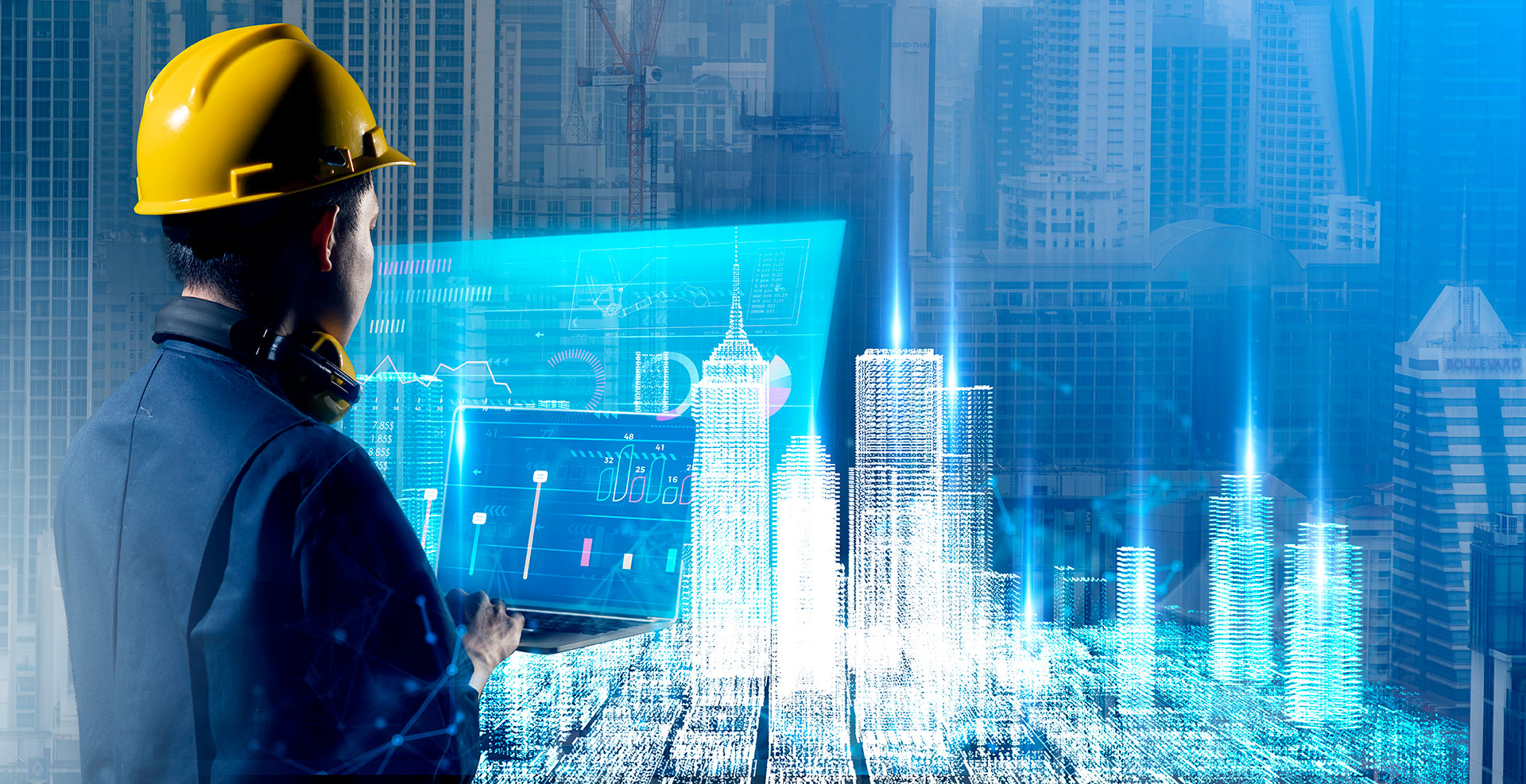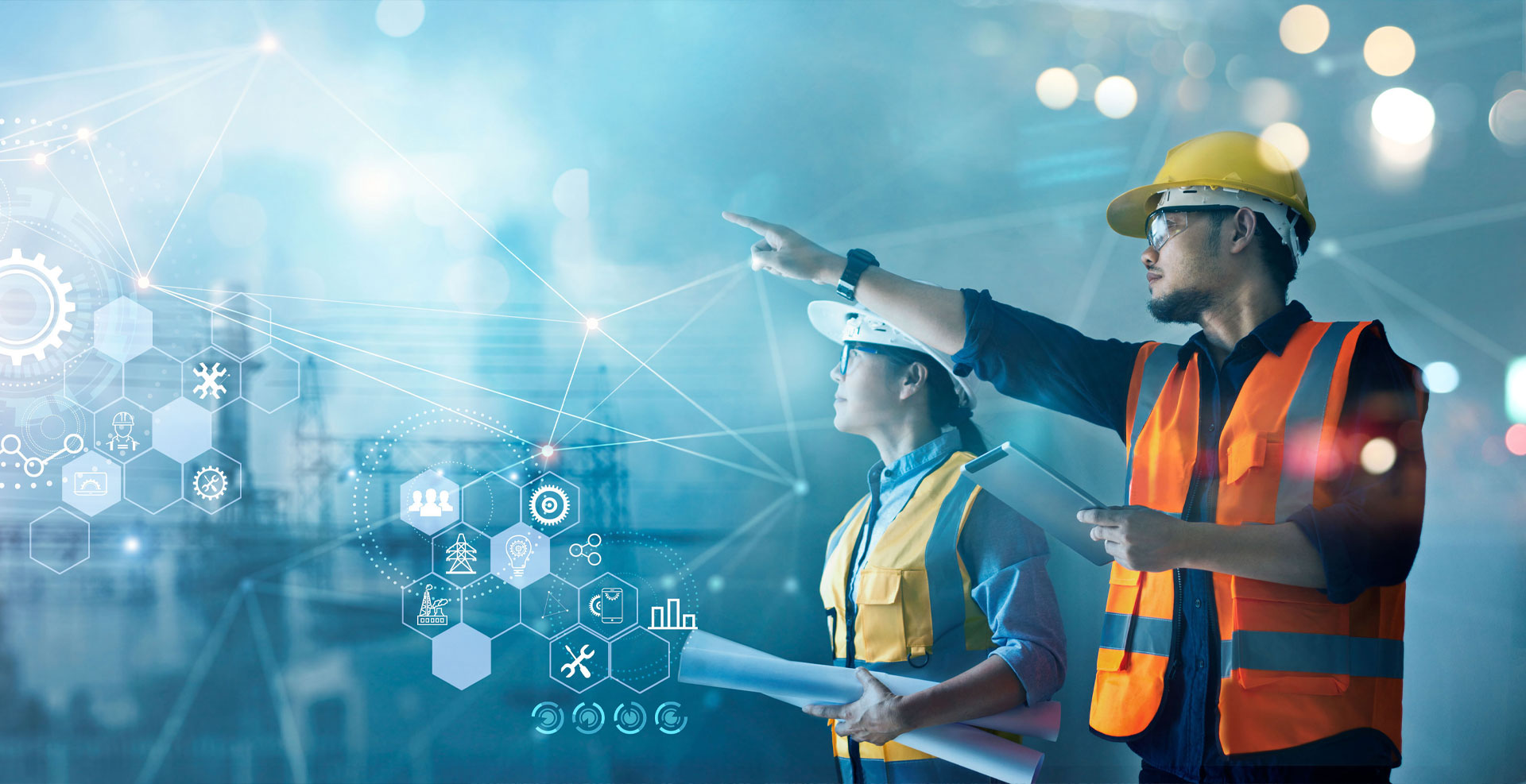AI isn't some buzzword; it's a technology with the potential to change the game for industries worldwide. You've heard of ChatGPT and digital assistants like Siri and Alexa. Well, they're just a taste of what construction AI can do. And our construction industry, which hasn't exactly been at the forefront of tech, is in for a shake-up thanks to AI.
The construction industry is worth trillions a year. That's a huge chunk of the global economy. And by embracing digital tools like AI, we could add a whopping $1.6 trillion to that every year. That's a serious boost! So, why does this matter to us tradespeople? Because AI in construction isn't just about flashy gadgets; it's about making our work smarter, faster, and safer. It's about boosting productivity, improving the quality of our work, and ensuring everyone stays safe on the job.
That's why it's important for us to understand how AI can benefit us, both on-site and in the software we use. Because when we do, we're not just keeping up with the times – we're setting ourselves up for success in a changing industry.

The AI Revolution: Building Tomorrow
AI and machine learning are revolutionizing construction, from design to operations. These technologies improve efficiency, safety, and accuracy. They optimize designs for energy efficiency, monitor job sites for hazards, and speed up operations. Robotic process automation enhances construction speed and quality. AI is changing how businesses design, execute, and manage projects, making it essential for companies to adapt to this emerging technology. Let's explore how construction AI is transforming the industry and how your business can stay ahead.
A Dual Focus: Reciprocating Projects and Software
The integration of AI isn't just about transforming projects; it's also about revolutionizing the software tailored for construction needs. As AI evolves, it reciprocates its impact between project execution and software solutions. On one hand, AI enhances project management by optimizing operations for safety, speed, accuracy, and efficiency. On the other hand, AI-driven software platforms empower construction professionals with tools that streamline processes, automate tasks, and provide actionable insights. This dual focus on projects and software ensures that the benefits of AI are maximized throughout the entire construction lifecycle, from initial planning to project completion.
AI’s Construction Odyssey
The historical blueprint of AI evolution traces back to the 1950s, with pioneers like Arthur Samuel envisioning computers' ability to learn without explicit programming.
Pioneering AI in Construction
In the construction industry, AI isn't just a futuristic concept; it's a practical solution shaping project stages from inception to completion.
- Early Development (1950s-1970s): Initial attempts at using construction AI began in the mid-20th century, focusing on basic rule-based systems for tasks like project scheduling.
- Expert Systems Era (1980s-1990s): The 1980s saw the rise of expert systems tailored to construction, aiding in areas like cost estimation and quality control by mimicking human expertise.
- CAD and BIM Revolution (1990s-Present): The adoption of CAD and BIM software transformed construction, enabling detailed digital modeling for better visualization and collaboration.
- Machine Learning Advances (2000s-Present): Machine learning techniques have been applied to various construction tasks, such as project scheduling and risk assessment, leveraging historical data for predictive analytics.
- Robotics and Automation (2010s-Present): Robotics and automation technologies, empowered by AI in construction, are used for tasks like site surveying and building assembly, enhancing efficiency and safety.
The Present Landscape of AI Building
AI is no longer a distant dream but a tangible reality. Its integration into various facets of construction operations highlights its transformative power, paving the way for enhanced efficiency and productivity.
Digital Twins and Smart Construction
Digital twins and smart construction technologies integrate real-time data with BIM models, enabling proactive monitoring and optimization throughout a building's lifecycle, promising smarter and more sustainable environments.
AI in construction has evolved from rudimentary rule-based systems to sophisticated applications leveraging machine learning, robotics, and digital twins for enhanced efficiency and sustainability. Today, AI encompasses machine learning and deep learning, leveraging vast datasets to make informed decisions and predictions. It's a journey that has led us to the present landscape, where AI stands poised to revolutionize construction.
Save Time and Money with ClockShark
AI In Construction Journey: A New Narrative
In construction, the integration of AI offers unparalleled chances for improvement and creativity. Take, for instance, the use of AI algorithms to analyze project data and predict potential delays, allowing us to adjust schedules preemptively. Additionally, AI-powered drones can survey job sites, providing real-time updates on progress and identifying potential safety hazards. With AI assisting in project management, we can streamline workflows, allocate resources more effectively, and make informed decisions faster. This ensures that we meet deadlines with precision, maintain top-quality workmanship, and ultimately exceed client expectations consistently.
Leveraging AI: Advantages and Challenges
Without a doubt, AI brings some serious advantages to the table. Take, for instance, how AI algorithms can crunch project data to predict potential bottlenecks, allowing us to fine-tune schedules proactively. Moreover, AI-driven drones can soar above job sites, offering real-time updates on progress and pinpointing safety hazards. Yet, it's crucial to acknowledge the hurdles. Integrating AI means embracing new technologies and workflows, which might mean a bit of a learning curve. And let's not forget about the importance of data security and privacy in this digital age. It's definitely a tightrope walk. However, for those of us ready to roll up our sleeves and ride the AI wave, the benefits can be nothing short of game-changing.
How to Address AI Implementation Challenges
While AI holds great potential, its implementation isn't without challenges. Navigating AI implementation challenges in construction requires a strategic approach and a readiness to address specific hurdles head-on.
- Integration into existing workflows and systems. This might involve overcoming resistance to change from workers accustomed to traditional methods and ensuring seamless compatibility between AI technologies and existing software platforms. Ensuring you integrate AI capabilities into your construction project checklist will help mitigate any issues in your workflow.
- Data management and privacy. Construction projects generate vast amounts of data, from building plans to on-site sensor readings, so ensuring the security and privacy of this data, especially when using AI algorithms, requires robust data governance policies.
- Skill gaps and training. Implementing AI technologies often demands specialized knowledge and expertise, so providing comprehensive training programs can help bridge these gaps.
- Overreliance on AI systems. While AI can enhance decision-making and streamline processes, it's essential to maintain human oversight and judgment. Relying too heavily on AI without human intervention can lead to blind spots and oversights (just think about what it’d be like if a robot was handling claims, for example), and you’ll quickly see why AI can potentially compromise project outcomes.
- Cost considerations. AI implementation often involves upfront investment in technology infrastructure, software licenses, and training programs. Balancing these costs against the expected benefits and ROI requires careful financial planning and risk assessment.
Ultimately, successful AI implementation in construction requires a combination of technical expertise, organizational readiness, and a commitment to continuous improvement.

What is AI Software for Construction?
AI in construction management uses artificial intelligence to streamline project management, optimize schedules and resources, and provide predictive insights. With AI-enhanced BIM, it improves building design and performance. Predictive analytics forecasts project outcomes and identifies risks, while AI enhances on-site safety and equipment maintenance. Overall, AI software drives efficiency and innovation in construction.
AI Software for Project Management
AI-driven solutions offer unparalleled capabilities for project management, safety compliance, and quality control. Let's explore some leading AI software examples and their features.
Example 1: ClockShark
ClockShark serves as a valuable AI tool for construction businesses by simplifying time tracking and streamlining project management. With its mobile time-tracking app, ClockShark replaces messy paper timesheets with accurate digital tracking, enabling field workers to effortlessly clock in and out, track tasks, and sync hours worked with specific jobs. The app also offers features like multiple crew member clock-ins from a single device and GPS tracking to monitor team locations on-site, ensuring efficient and transparent time management. Additionally, ClockShark integrates with accounting and payroll software, automating processes and reducing manual data entry errors. Moreover, ClockShark's employee scheduling app further enhances workflow efficiency by enabling easy creation and updates of work schedules, automatic notifications for schedule changes, and seamless integration with job details and time tracking. By providing a comprehensive solution for time tracking, scheduling, quoting, invoicing, and project management, ClockShark simplifies operations and boosts productivity for construction businesses.
Example 2: ClickUp
ClickUp is a valuable AI tool for construction businesses by offering a single platform to manage all types of work. With its exceptional flexibility, ClickUp adapts to various workflows seamlessly, aided by AI-powered productivity features that enhance efficiency. Users can effortlessly switch between 15 different views, customize configurations, and integrate with existing tools, reducing app sprawl and streamlining operations. ClickUp's comprehensive search functionality enables easy access to files and information from one centralized location, while its organizational tools keep teams ahead of upcoming tasks and events. Trusted by over 2 million teams worldwide, ClickUp empowers construction businesses to collaborate effectively and get work done efficiently.
Example 3: OpenSpace.ai
OpenSpace.ai offers advanced reality capture software, integrations, and analytics tools for construction businesses. Contractors can fully document sites, improving coordination and reducing delays. With user-friendly technology, teams can effortlessly create virtual jobsites using 360° cameras, streamlining communication and enhancing workflows. OpenSpace provides insights into project progress and risks, facilitating informed decision-making. Leveraging proprietary algorithms, including computer vision and machine learning, OpenSpace ensures accurate data capture. Additionally, it prioritizes data security and offers robust customer support, empowering construction businesses to build faster and achieve better project outcomes.
ClockShark’s Role in the Future of Construction AI
ClockShark, a leading provider of construction AI software, empowers tradespeople with cutting-edge tools and insights to optimize project performance, streamline operations, and drive business growth. By embracing ClockShark's AI in construction management, construction professionals can overcome challenges, capitalize on opportunities, and redefine the future of construction AI. Get started now!
The integration of AI in the construction industry represents a paradigm shift, transforming both project execution and software solutions. As we navigate this transformative journey, leveraging AI's capabilities and addressing implementation challenges are key to shaping a brighter future for construction. AI in the construction industry isn't just a technological evolution; it's a revolution that's redefining the way we build tomorrow.





